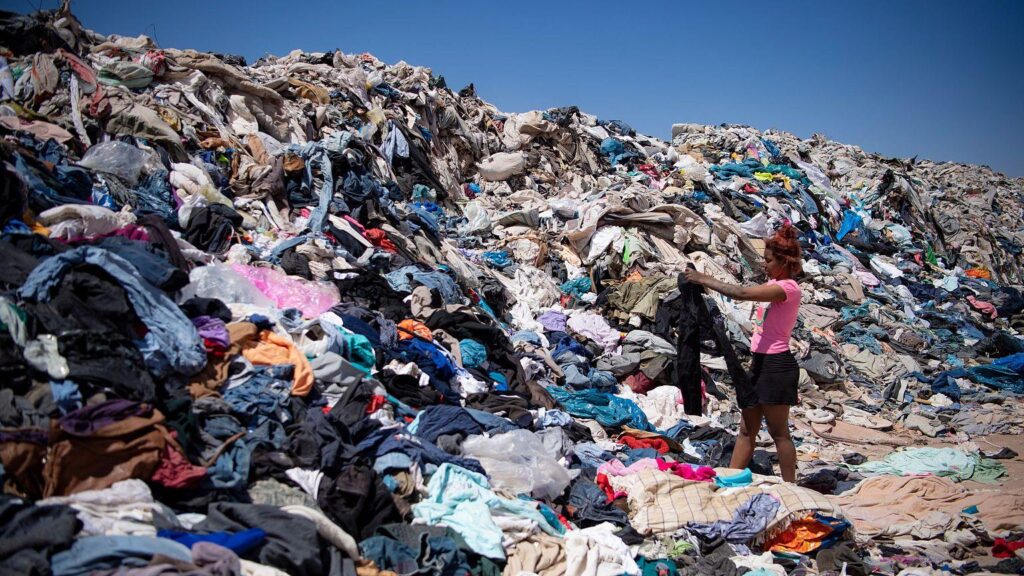Greenpeace Unveils the Hidden Toll of Fast Fashion on Ghana’s Environment and Communities
A recent Greenpeace investigation exposes the severe repercussions fast fashion imposes on Ghana, a country increasingly burdened by the global surge in textile waste. As consumer demand for inexpensive, trendy apparel escalates worldwide, so does the volume of discarded clothing flooding into West Africa. Ghana has become a major recipient of this unwanted secondhand clothing, much of which ends up in landfills or is improperly disposed of, triggering significant environmental harm and serious health concerns for local populations.
The Growing Impact of Global Textile Waste on Ghana’s Ecosystems and Economy
Fast fashion’s rapid expansion has overwhelmed Ghana with an influx of used garments primarily sourced from Western nations. This phenomenon fuels a booming secondhand market but simultaneously strains local infrastructure and natural resources. The relentless production and disposal cycle associated with cheap clothing contributes to widespread pollution—contaminating soil, water bodies, and air quality—and undermines traditional textile industries by saturating markets with low-quality imports.
- Air pollution: Toxic fumes released from burning discarded textiles.
- Soil & water contamination: Hazardous chemicals leaching into ecosystems.
- Public health threats: Exposure to pollutants causing respiratory illnesses and skin disorders.
- Erosion of local economies: Displacement of indigenous garment producers by inferior fast fashion products.
This mounting crisis highlights an urgent need to rethink global consumption habits while fostering sustainable alternatives that protect both environmental integrity and community well-being in affected regions like Ghana.
The Environmental Hazards Embedded in Textile Waste Disposal Practices
The unchecked arrival of vast quantities of secondhand clothes has transformed parts of Ghana into de facto dumping grounds for textile refuse. Improper waste management methods—such as open-air burning or illegal dumping—release dangerous substances including chlorinated compounds found in synthetic fibers and dyes. These pollutants infiltrate soils and waterways, disrupting biodiversity and contaminating vital resources relied upon by communities for drinking water, agriculture, and fishing.
The consequences extend beyond ecological damage; human health is directly imperiled through prolonged exposure to these toxins. Residents face heightened risks such as chronic respiratory ailments caused by inhaling particulate matter during incineration events; dermatological conditions triggered by contact with chemical residues; waterborne diseases stemming from polluted sources; as well as increased incidences of cancers linked to long-term toxic exposure.
| Health Concern | Causative Factor |
|---|---|
| Respiratory Disorders | Toxic emissions from fabric combustion |
| Skin Irritations & Allergies | Chemical contact via contaminated waste materials |
| Diseases Linked to Water Pollution | Tainted drinking sources due to chemical runoff |
Sustainable Strategies: Addressing Fast Fashion’s Footprint in Ghana Through Collective Action
- < strong >Improving Waste Management Systems : strong > Developing efficient recycling programs , enhancing sorting facilities ,and reducing landfill dependency .< / li >
- < strong >Supporting Local Sustainable Fashion : strong > Investing in eco-conscious apparel manufacturing using indigenous materials promotes economic resilience .< / li >
- < strong >Educating Consumers : strong > Raising awareness about the environmental costs tied to purchasing decisions encourages responsible consumption patterns .< / li >
- < strong >Advocacy for Regulatory Measures : strong > Enacting policies limiting importation volumes , enforcing proper disposal protocols ,and incentivizing green production practices .< / li > ul >
An integrated approach involving diverse stakeholders can amplify impact: government agencies crafting legislation ; NGOs mobilizing grassroots participation ; brands committing to ethical sourcing ; consumers choosing sustainable options—all working synergistically toward reversing fast fashion’s detrimental effects on Ghanaian society.< / p >
Stakeholder< / th > Role< / th > Contribution/Benefit< / th > tr > thead > < td > Government Authorities < / td >< td > Policy Formulation & Enforcement < / td >< td > Establish legal frameworks controlling waste inflow & promoting green industries < / > <  Fashion Industry Players  Corporate Social Responsibility Initiatives&nbs;p;  pledge sustainable sourcing standards & fair labor practices&nbs;p; t r>> < t d>&nb spConsumers&nb sp; t d>& nb spConscious Buying Decisions& nb sp;& nb sp;& nb sp;& nbsp;& nbsp;& nbsp;& nbsp;& nbsp;
Shift demand towards ethically produced garments reducing overall waste generation.
</t d>
</t r></tb ody>
</ta ble>
</div>
A Call for Change: Embracing Responsible Fashion Consumption Globally—and Locally—in Light Of New Evidence From Greenpeace Report
The comprehensive analysis presented underscores how fast fashion’s unchecked growth leaves behind a trail not only visible across landscapes but deeply embedded within public health crises affecting vulnerable populations like those in Ghana.
This report serves both as an urgent warning against continuing unsustainable practices globally—and an invitation toward transformative change emphasizing durability over disposability.
If we are committed collectively—to consumers making informed choices,
policymakers enacting protective regulations,
industry leaders adopting transparent sustainability measures—the future can shift away from exploitation toward regeneration.

